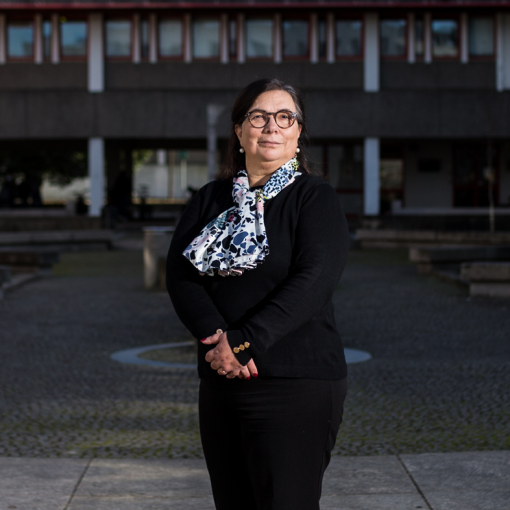Carlos Couto had the first European patent (1993) and José Covas the national patent (1996) for UMinho, with a new type of thermometer and a polymer sample collector to be transformed.
The University of Minho has been at the forefront of innovation and economic valorisation of knowledge in its various forms. Industrial property licensing has a long and fruitful distinguished history. This is due to the talent and resilience of scientists and R&D centres, but also to the strategy of the various rectorial teams and the work of the TecMinho interface and its Support Office for the Promotion of Industrial Property (GAPI), coordinated by Marco Sousa.
In this scope, the Communication Office of the University of Minho got to know the first patents in the name of UMinho. The first of the 324 registrations at the European Patent Office (EPO) started on 3rd May 1993. “Method of contactless measuring the surface temperature and/or emissivity of objects” was submitted in the Czech Republic, by Carlos Couto and the Czech Lubos Hes. In Portugal, the National Institute of Intellectual Property (INPI) aggregates 232 patents from UMinho, and the first application, “Device for rapid sampling of polymer from extruders”, was submitted on 27 November 1996 by José Covas.
First time in Europe co-authored
Carlos Couto, full professor of the Department of Industrial Electronics of the School of Engineering of UMinho (EEUM), had already been connected in the 1980s to the development of one of the first electronic scales. As for his first patent at the EPO, it resulted from a “self-calibrated pyrometer, relative to the emissivity of the body whose temperature is intended to be measured”. The project was initiated in October 1993 by two final-year students, under the co-supervision of Carlos Couto and Lubos Hes. It is co-registered on behalf of UMinho, in Brussels (Belgium), under reference 94117 CH/EU, dated 28 April 1994 and valid for Germany, France, United Kingdom and Portugal. Lubos Hes, from the Technical University of Liberec, would carry out in UMinho the aggregation exams in Textile Physics, in June 1995.
“This work was then repeated with the development of an integrated sensor, using micro-nanotechnologies, which allowed the fastest performance of the two measurements with low energy consumption”, stresses Carlos Couto. Luís Miguel Gonçalves, already a teacher at UMinho, was involved in this research. However, due to several multiple reflections, the records obtained did not allow the exact confirmation of the patent object.
Even so, Carlos Couto considers without reservation that “the experience acquired allowed to develop from there several projects related to radiation micro-sensors and thermoelectric micro-devices” (for heating and cooling). This resulted in an important line of research, with an appreciable number of publications in scientific journals.
Cutting-edge polymers in Portugal
In Portugal, the first patent submitted to INPI by UMinho was in 1996 and consisted of a device to collect polymer samples along the cylinder of a running extruder. The author is José Covas, full professor of the Department of Polymer Engineering at EEUM and researcher at the Institute of Polymers and Composites (IPC) in the areas of rheology, processing and polymer composition.
The extruders, equipments very used by the industry for materials preparation, are unfortunately like a “black box”, because they don’t give access to information about what happens with the material during the processing, explains José Covas. The material being processed is heated above the melting point and subjected to a complex flow, so it became important to identify problems of degradation or improper mixing of the components. “This invention allows material samples to be taken at specific locations in the machine, for analysis of its characteristics,” he reveals.
The patent was later complemented with other inventions, which made it possible to directly characterise the properties of the material at the points where samples were taken. In fact, on 20 February 1999, the weekly magazine “Expresso” gave prominence to this “Innovation of Plastics”. This patent and the resulting research allowed the presentation of results in several international conferences, as well as the publication of articles in relevant scientific journals, which led to collaborations with colleagues from European and Brazilian universities, besides an intense activity with some of the biggest European producers of polymers and plastics.
As a scientist, José Covas considers that this invention played a decisive role, as it was the basis of a set of innovations that allowed coupling polymer characterisation equipment to extruders, thus evaluating – in real time and along the machine cylinder – the properties of complex polymeric systems, during its operation. “This expertise and the results obtained have brought several collaborations, projects and international recognition.”
SOURCE: NÓS



